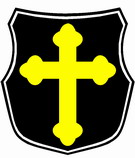
Kurt Georg Kiesinger was a German politician who served as the chancellor of West Germany from 1 December 1966 to 21 October 1969. Before he became Chancellor he served as Minister–President of Baden-Württemberg from 1958 to 1966 and as President of the Federal Council from 1962 to 1963. He was Chairman of the Christian Democratic Union from 1967 to 1971.
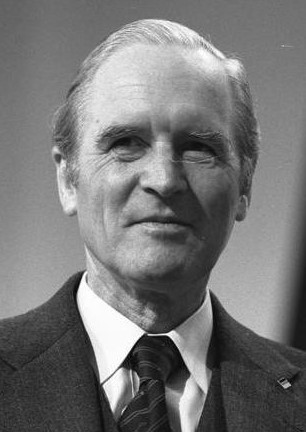
Karl Carstens was a German politician. He served as the president of West Germany from 1979 to 1984.

Beate Auguste Klarsfeld is a Franco-German journalist and Nazi hunter who, along with her French husband, Serge, became famous for their investigation and documentation of numerous Nazi war criminals, including Kurt Lischka, Alois Brunner, Klaus Barbie, Ernst Ehlers and Kurt Asche.
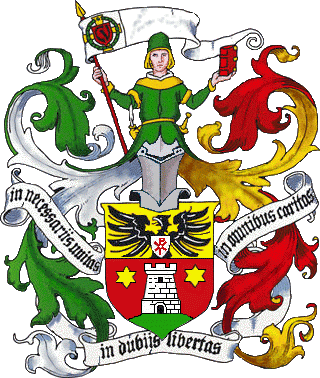
The Union of Catholic German Student Fraternities is a German umbrella organization of Catholic male student fraternities (Studentenverbindung).
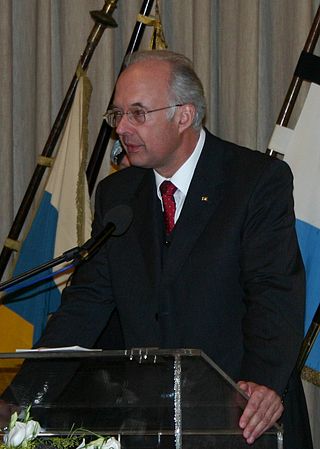
Paul Kirchhof is a German jurist and tax law expert. He is also a professor of law, member of the Pontifical Academy of Social Sciences and, a former judge in the Federal Constitutional Court of Germany (Bundesverfassungsgericht), the highest court in Germany.

Paul Gustav Emil Löbe was a German politician of the Social Democratic Party of Germany (SPD), a member and president of the Reichstag of the Weimar Republic, and member of the Bundestag of West Germany. He died in Bonn in 1967.

Hermann Höcherl was a German politician of the Christian Social Union in Bavaria (CSU). He served as Federal Ministry of the Interior from 1961 to 1965 and as Federal Minister for Food, Agriculture and Forests from 1965 to 1969.

The Katholischer Studentenverein Arminia is one of Germany's oldest Catholic male student societies.
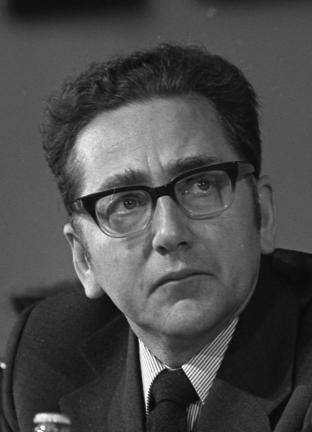
Erhard Eppler was a German politician of the Social Democratic Party (SPD) and founder of the Deutsche Gesellschaft für Technische Zusammenarbeit (GTZ). He studied English, German and history in Frankfurt, Bern and Tübingen, achieved a PhD and worked as a teacher. He met Gustav Heinemann in the late 1940s, who became a role model. Eppler was a member of the Bundestag from 1961 to 1976. He was appointed Minister for Economic Cooperation first in 1968 during the grand coalition of Kurt Georg Kiesinger (CDU) and Willy Brandt (SPD), continuing under Chancellor Brandt in 1969 and Chancellor Helmut Schmidt (SPD) in 1974, when he stepped down.

Richard Stücklen was German politician of the Christian Social Union (CSU). He had previously been a member of the NSDAP (1939–1945). From 1957 to 1966, he served as Federal Minister for Post and Communication. A member of the German parliament for more than 40 years, he served as the seventh president of the Bundestag from 1979 to 1983.
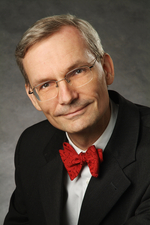
Michael F. Feldkamp is a German historian and journalist.
The Kartellverband katholischer deutscher Studentenvereine is a German academic corporate association with ninety member corporations in Germany, Austria, [Belgium], and Switzerland. As of February 2008, the Alliance represents 16,000 students in Germany alone.

Hermann Heinrich Grauert since 1914 Knight of Grauert, was a German historian. He was born in Pritzwalk and died in Munich.

Most German chancellors have been followers of a Christian church. German society has been affected by a Catholic-Protestant divide since the Protestant Reformation, and the same effect is visible in this list of German chancellors. It is largely dominated by Catholics and Protestants as these remain the main confessions in the country.

Theodor Brüggemann was an energetic school teacher who became a Prussian government official and a politician.
Historical rankings of chancellors of Germany are surveys conducted to construct rankings of the success and popularity of the individuals who have served as Chancellor of Germany in the Federal Republic of Germany.
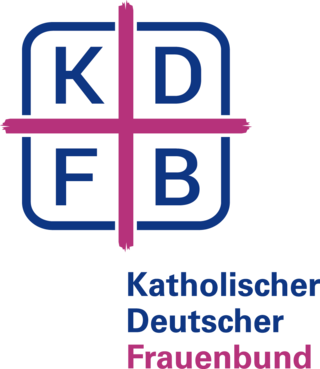
The German Catholic Women's Association, abbreviated as KDFB, is a federally registered Catholic lay women's organization and political interest group. The association has roughly 180,000 members in Germany with 1,800 branches in twenty-one German dioceses.

Ludwig Theodor Ferdinand Max Wallraf was a German politician who served as mayor of Cologne from 1907 to 1917. He was State Minister of the Interior from 1917 to 1918. As a German National People's Party politician, he was a member of the Reichstag from 1924 to 1930 and briefly served as its President in 1924/25.
